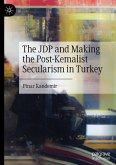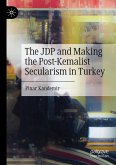This book provides an informed analysis of the ideological content of Kemalism--the name given to Mustafa Kemal Ataturk's party's political thought and practice--and the persistently official and semi-official, hegemonic ideology of the Turkish Republic, formally founded in 1923. Through a textual and contextual analysis of Kemalism in Ataturk's speeches and the official documents of the ruling Republican People's Party, Taha Parla and Andrew Davison offer fresh interpretations of the political, economic, social, and cultural goals of the Kemalist version of Turkish nationalism. They also provide an astute analysis of the power and authority that Ataturk and his colleagues believed were necessary to achieve their implementation, and of the institutions created in that process. Kemalism as a democratizing and secularizing framework for modern governance is debated by illuminating Kemalism's emphatic and self-conscious, corporatist ideological core. The authors show how Kemalism's conceptions of society, national identity, the relationship between the state and Islam, and other fundamental political dynamics require a rethinking of its democratic, secular, and modernist reputation, and its prospects for, and barriers to, a more democratic Turkey within the Kemalist legacy.
Hinweis: Dieser Artikel kann nur an eine deutsche Lieferadresse ausgeliefert werden.
Hinweis: Dieser Artikel kann nur an eine deutsche Lieferadresse ausgeliefert werden.








